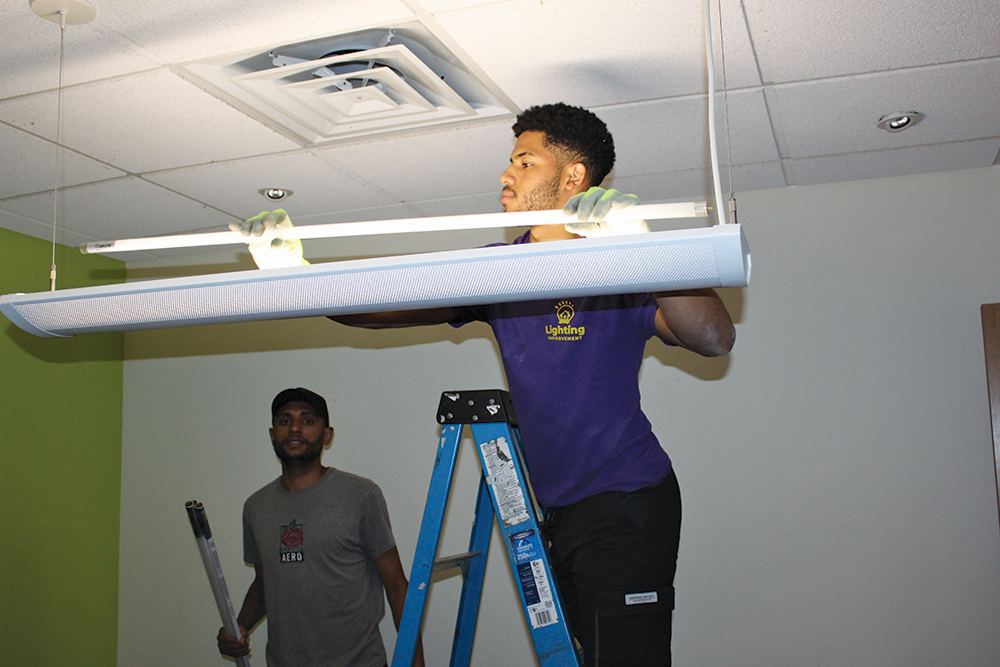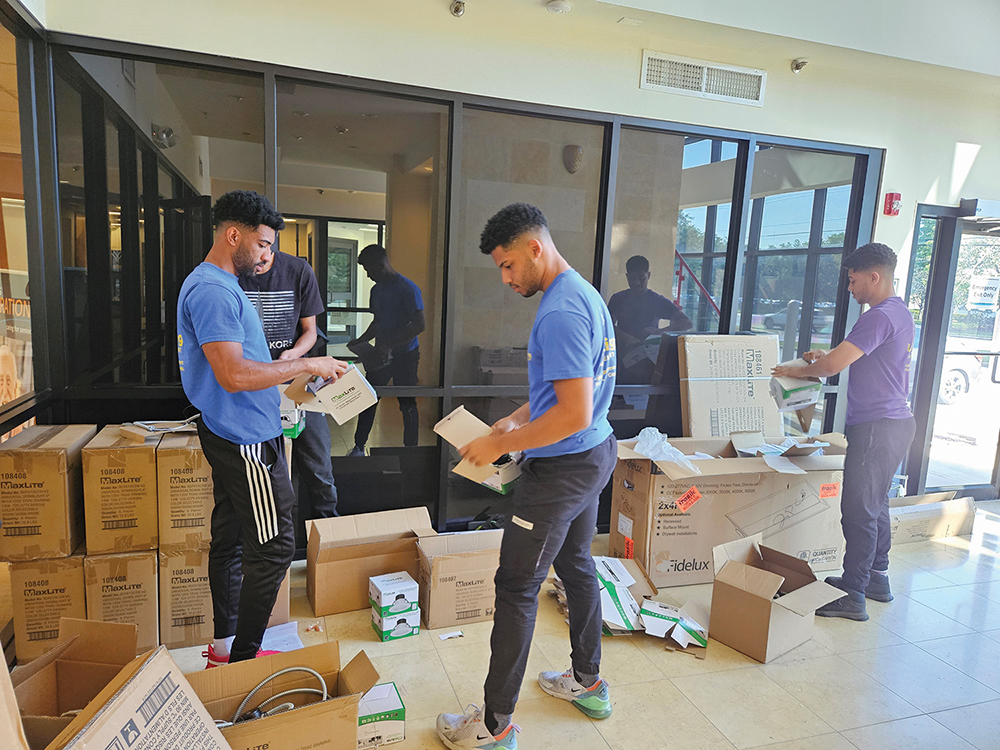
(Courtesy of JFNNJ) In an era where sustainable practices are becoming increasingly vital, New Jersey’s Clean Energy Program has emerged as a beacon of hope for nonprofit organizations, enabling them to upgrade their energy systems while reaping substantial financial benefits.
Spearheaded by Jewish Federation of Northern New Jersey in collaboration with the New Jersey Board of Public Utilities, this initiative is driving positive change within the community and demonstrating the tangible advantages of embracing clean energy solutions.
Several years ago, PSEG introduced the “Direct Install” program, a crucial component of New Jersey’s Clean Energy Program. This initiative was established in response to a series of executive orders signed by Gov. Phil Murphy, aimed at transitioning the state to a 100% clean energy economy by 2035. Recognizing the transformative potential of this program, Federation’s Kehillah Cooperative Initiative embarked on a mission to inform and assist their affiliated agencies, synagogues and day schools in harnessing its benefits. The “Direct Install” program provides a unique opportunity for nonprofits to reduce their energy expenses substantially. The results have been nothing short of remarkable and participating organizations are experiencing significant savings.
But where does the funding for these savings come from? The answer lies in a line item on PSE&G bills known as the “Societal Benefits Charge.” For over three decades, individuals and organizations have been contributing to this fund, unaware of the potential benefits it could unlock. This small charge on the bills has amassed to become a critical source of funding for government mandated programs designed to address public policy targets, including energy conservation.

To take advantage of this opportunity, nonprofits must complete an application process and undergo an audit of their existing equipment. While specific criteria must be met, the potential for substantial savings makes this effort more than worthwhile. “The New Jersey utility funded energy efficiency programs are some of the best in the country, and with incentives up to 80%, it is an incredible opportunity for organizations to replace outdated lighting and mechanical equipment at a significant discount,” according to Gary Bell from Facility Solutions Group in Manalapan, one of the utility’s program managers.
Federation is committed to ensuring that as many organizations as possible benefit from this program. Currently, eight agencies have initiated the application process, demonstrating their commitment to a sustainable future. These organizations include the Fair Lawn Jewish Center; Shomrei Torah, Fair Lawn; Yavneh Academy, Paramus; Young Israel of Fair Lawn; Yeshivat Noam, Paramus; Ben Porat Yosef, Paramus; Barnert Temple, Franklin Lakes; and Lubavitch on the Palisades, Tenafly.
Cong. B’nai Israel/Fair Lawn Jewish Center recently completed their application and was thrilled with the outcome. The executive director, Thorin Tritter, explained, “The project cost is $639,000 and over 68%, more than $440,000, will be covered by PSE&G. It is a game changer for the center and our community.”
Federation is not only sharing the information with other agencies, shuls, day schools and organizations, but it also completed the application and reaped the benefits. Andy Epstein, federation CFO, shared, “We couldn’t be happier. We have a new boiler, new lights, and three new rooftop HVAC units (RTUs). Eighty percent of the project was covered by this program. We never would have been able to do this.”
The success stories emerging from these early adopters are inspiring. Energy efficiency upgrades are not only reducing operational costs but also contributing to a greener and more sustainable New Jersey. As more nonprofits join the cause, the collective impact on the environment and economy will be substantial.
For more information, contact Lori Freudenberger-Nelson at lorif@jfnnj.org.











